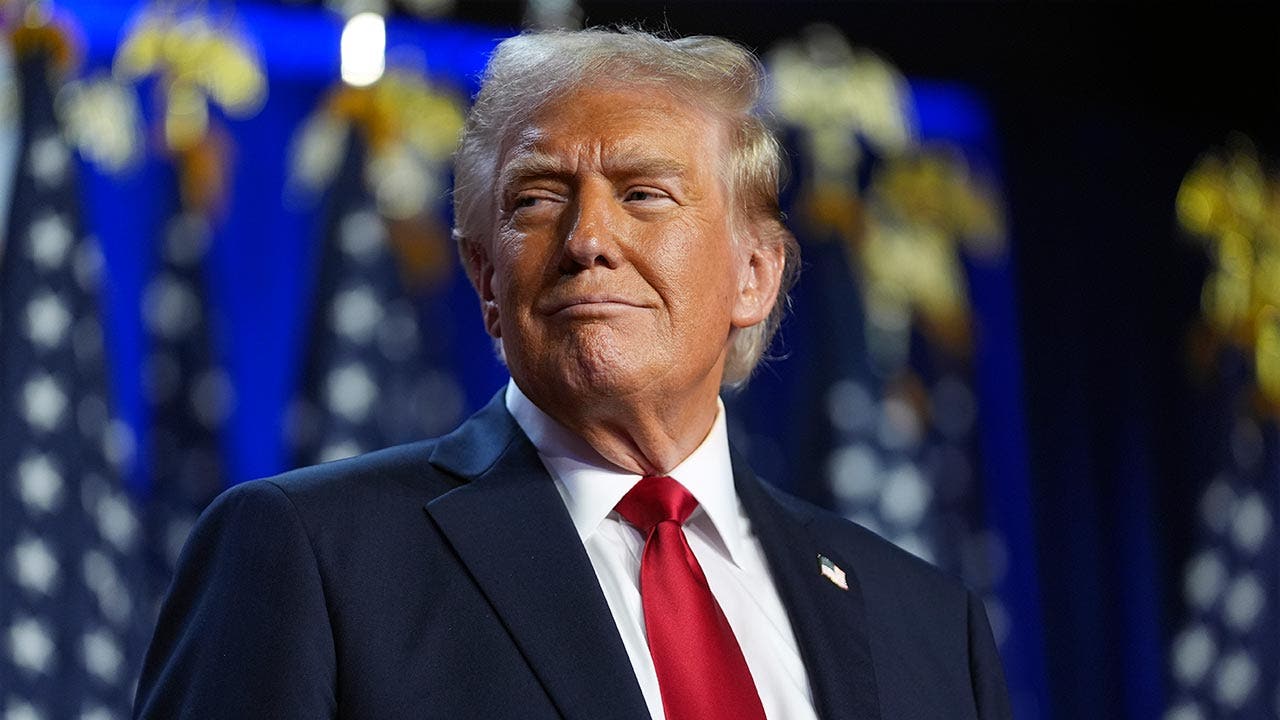Politics
New poll shows what Americans think of Trump’s performance in second term

President Trump’s Second Term: A Nation Divided, Yet Hopeful
A Strong Start: Keeping Campaign Promises
President Donald Trump’s second stint in the White House has kicked off with a wave of approval from the American public, particularly for his commitment to keeping campaign promises. According to a CBS/YouGov poll conducted earlier this month, a staggering 70% of Americans believe President Trump is delivering on his campaign pledges, while only 30% feel his actions have deviated from what he promised. This stark divide underscores the president’s ability to connect with his base and maintain their trust, a key factor in his political success.
The poll, which surveyed 2,175 U.S. adults between February 5-7, also revealed that President Trump’s overall job approval rating stands at 53%, with 47% disapproving of his performance so far. While this margin is relatively slim, it highlights the deeply polarized nature of American politics. Voters who approve of Trump often praise his tenacity and focus, with 69% describing him as “tough,” 63% as “energetic,” and 60% as “focused.” A significant 58% also view him as “effective” in his role, further cementing his reputation as a leader who gets things done.
Public Perception: A Mixed Bag of Approval and Criticism
Despite the widespread approval of his commitment to campaign promises, President Trump’s policies and actions have not been universally embraced. On issues like immigration, for instance, 59% of Americans support his program to deport illegal immigrants, while 41% oppose it. Similarly, 64% approve of his decision to send U.S. troops to the U.S.-Mexico border, with 36% expressing disapproval. These numbers suggest that Trump’s hardline stance on immigration resonates with a majority of the country, even as it remains a contentious issue.
However, not all of Trump’s actions have met with the same level of enthusiasm. His handling of the Israel-Hamas conflict, for example, has drawn mixed reactions. While 54% of Americans approve of his approach to the crisis, 46% disapprove, indicating a split in public opinion on his foreign policy decisions. More controversially, only 13% of respondents supported Trump’s proposal for the U.S. to take over Gaza following the war, with 47% deeming it a “bad idea” and 40% remaining unsure. This significant opposition highlights the complexities of international diplomacy and the risks of overextending U.S. involvement in volatile regions.
Economic Agenda: A Work in Progress
One area where President Trump has faced criticism is his handling of the economy, particularly his efforts to tackle inflation. A whopping 66% of Americans feel he has not done enough to lower prices, while just 31% believe he has struck the right balance. A mere 3% think he has focused too much on the issue. These numbers suggest that, despite his overall approval rating, many voters are wary of Trump’s economic policies and their impact on their daily lives.
Opinions on tariffs are equally divided. A majority of 56% approve of tariffs on China, reflecting a broader sentiment that the U.S. needs to stand firm against its global competitors. However, support drops significantly for tariffs on other key trading partners, with only 44% approving of tariffs on Mexico, 40% on Europe, and 38% on Canada. This disparity indicates that while voters may support protectionist measures in theory, they are more cautious when it comes to specific trade partners, likely due to concerns about economic retaliation and rising consumer costs.
Elon Musk, DOGE, and the Role of Influence in Government Spending
Beyond President Trump’s performance, the poll also shed light on public opinion regarding Elon Musk and DOGE, a cryptocurrency that has gained significant attention in recent months. While 23% of Americans believe the new agency should have “a lot” of influence over government spending, and 28% think it should have “some,” the combined total of 51% suggests a cautious endorsement of DOGE’s role in shaping fiscal policy. Conversely, 18% believe it should have “not much” influence, and 31% argue it should have “none,” amounting to 49% who are either skeptical or outright opposed.
This division reflects the broader debate over the role of cryptocurrencies and tech moguls like Elon Musk in influencing government decisions. While some see innovation and efficiency as potential benefits, others worry about the lack of accountability and the concentration of power in the hands of private entities. As DOGE and other digital currencies continue to evolve, public opinion will likely remain a key factor in determining their influence on government spending and policy.
A Nation Divided, Yet Hopeful
In conclusion, President Trump’s second term has gotten off to a promising start, with a majority of Americans approving of his commitment to campaign promises and his handling of key issues like immigration and border security. However, challenges remain, particularly in addressing economic concerns and navigating the complexities of international conflicts. The divide in public opinion on issues like tariffs and Gaza underscores the difficult balancing act Trump faces as he seeks to maintain his base while appealing to a broader constituency.
The inclusion of questions about Elon Musk and DOGE in the poll also reveals a growing curiosity about the intersection of technology, finance, and government. As the nation moves forward, these topics are likely to remain central to political discourse, shaping the trajectory of Trump’s second term and beyond. While the country remains deeply polarized, the poll’s findings suggest that there is still room for hope and optimism, as long as leaders are willing to listen to the diverse voices of the American people.